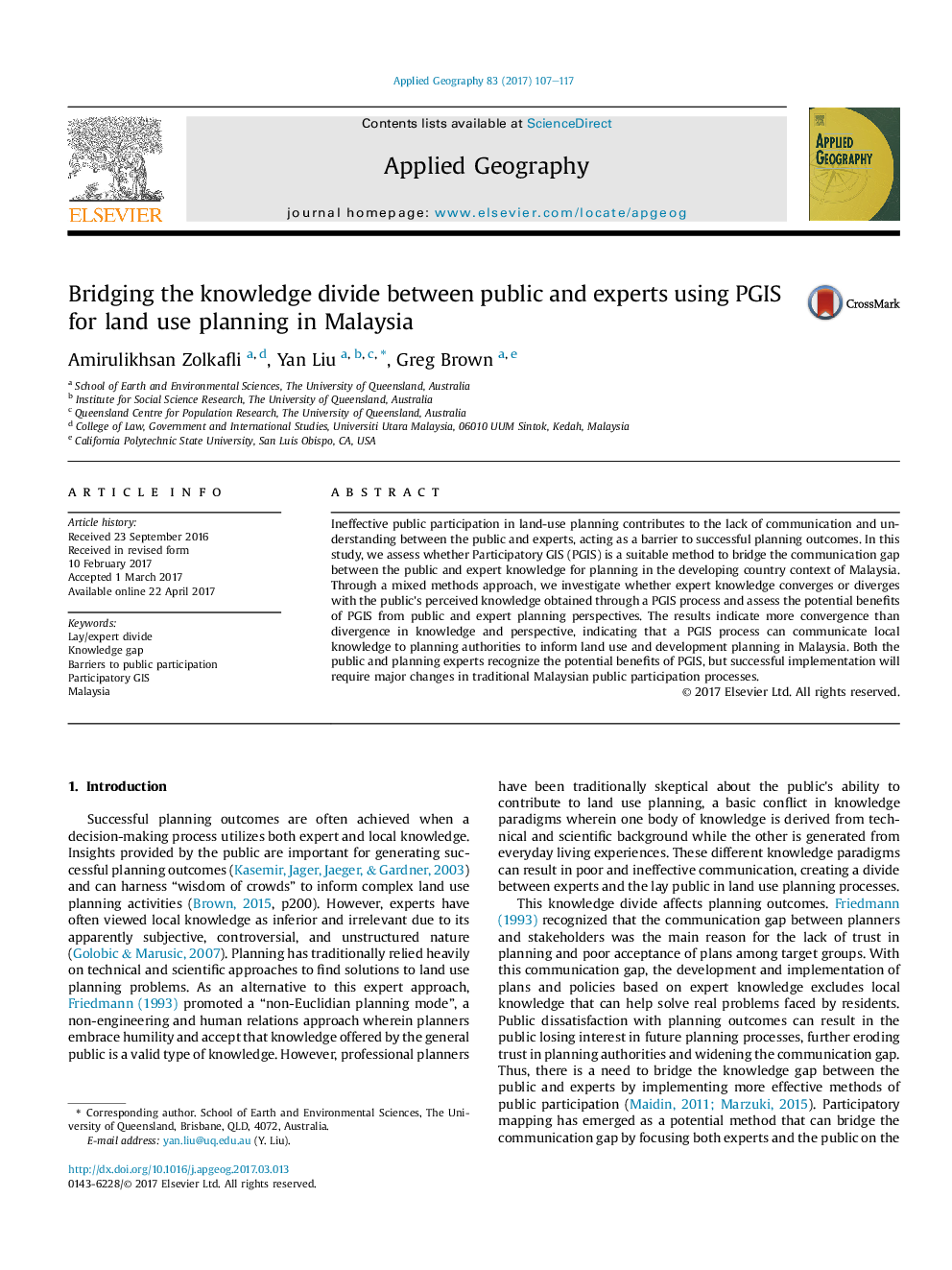| Article ID | Journal | Published Year | Pages | File Type |
|---|---|---|---|---|
| 4759041 | Applied Geography | 2017 | 11 Pages |
Abstract
Ineffective public participation in land-use planning contributes to the lack of communication and understanding between the public and experts, acting as a barrier to successful planning outcomes. In this study, we assess whether Participatory GIS (PGIS) is a suitable method to bridge the communication gap between the public and expert knowledge for planning in the developing country context of Malaysia. Through a mixed methods approach, we investigate whether expert knowledge converges or diverges with the public's perceived knowledge obtained through a PGIS process and assess the potential benefits of PGIS from public and expert planning perspectives. The results indicate more convergence than divergence in knowledge and perspective, indicating that a PGIS process can communicate local knowledge to planning authorities to inform land use and development planning in Malaysia. Both the public and planning experts recognize the potential benefits of PGIS, but successful implementation will require major changes in traditional Malaysian public participation processes.
Related Topics
Life Sciences
Agricultural and Biological Sciences
Forestry
Authors
Amirulikhsan Zolkafli, Yan Liu, Greg Brown,
